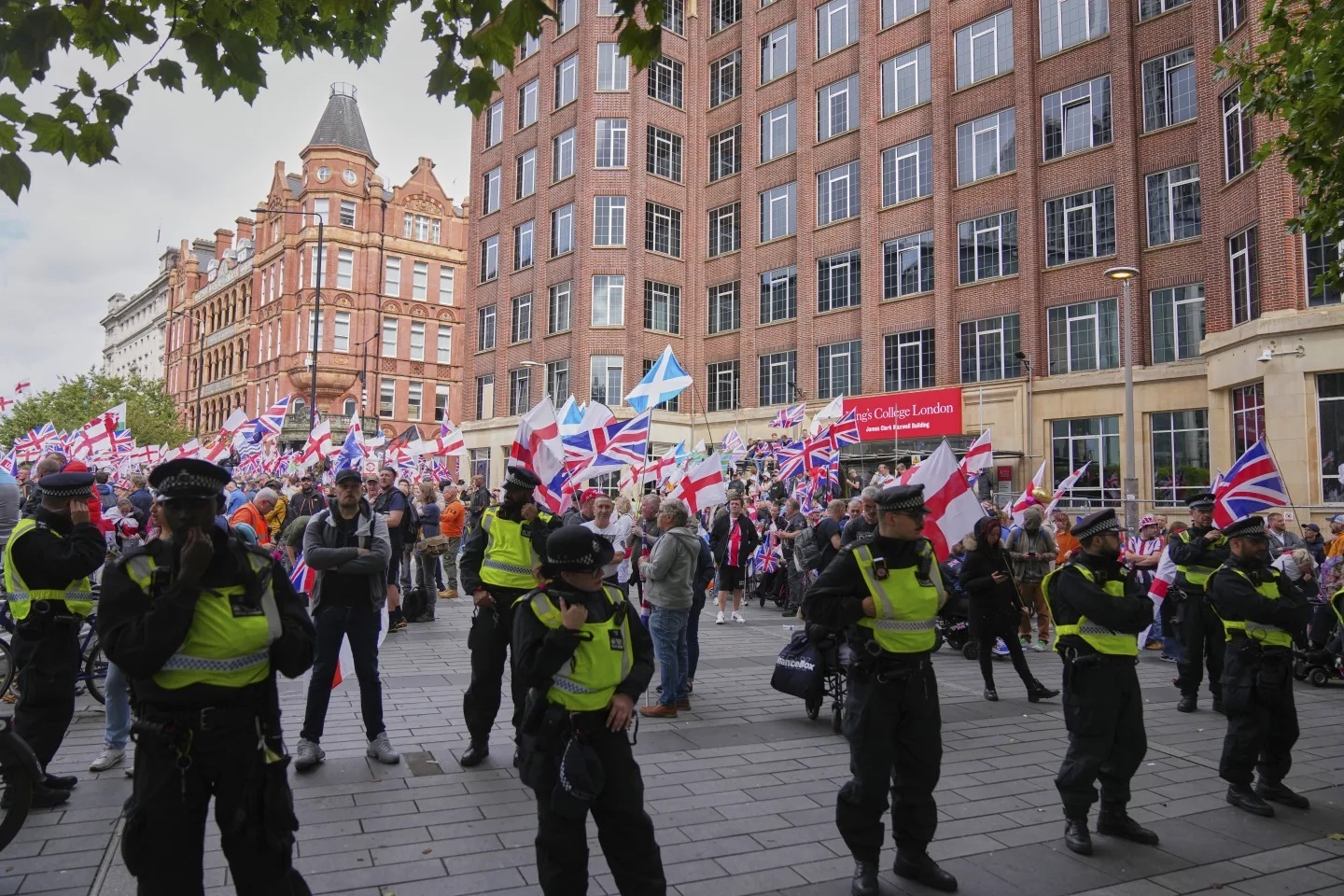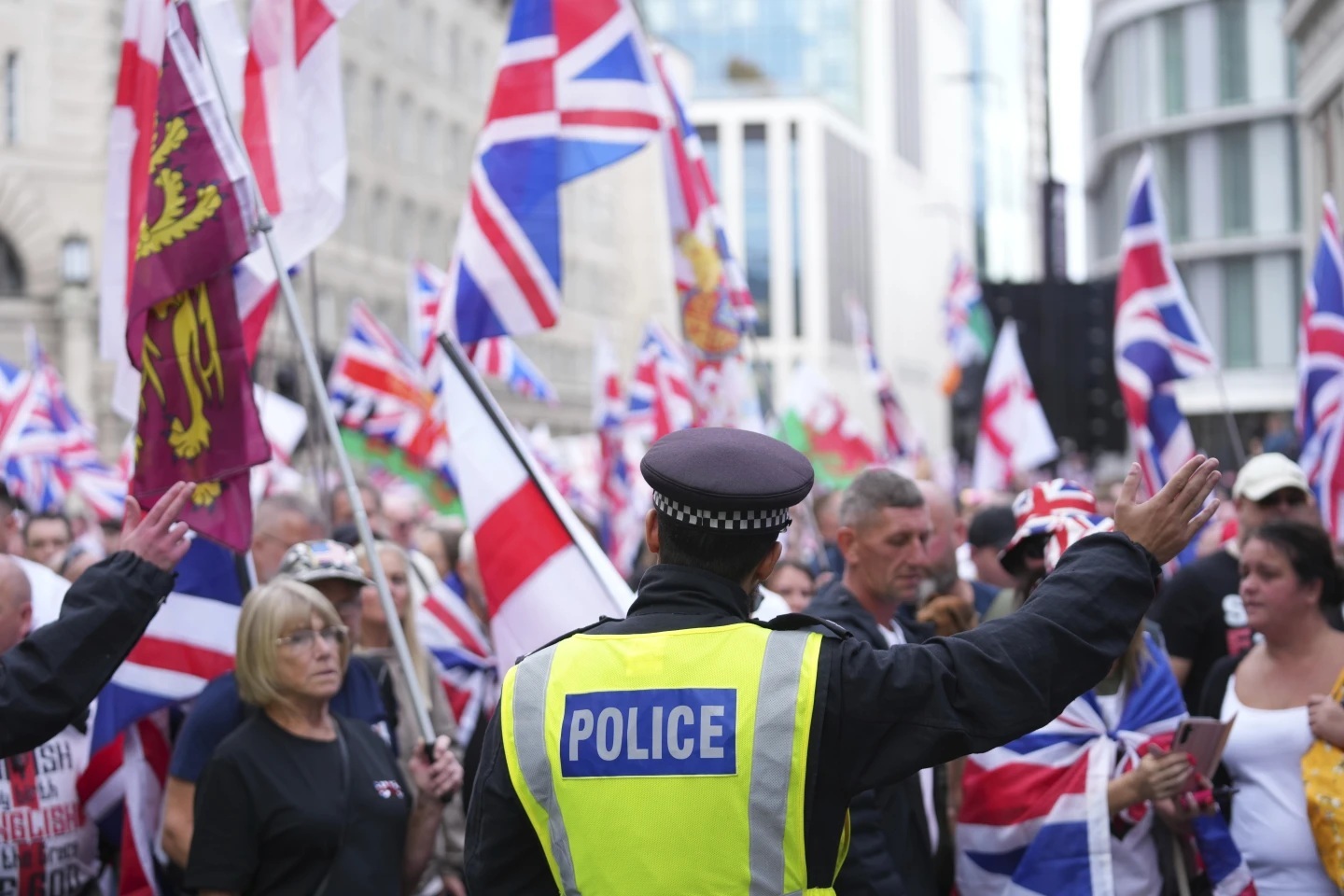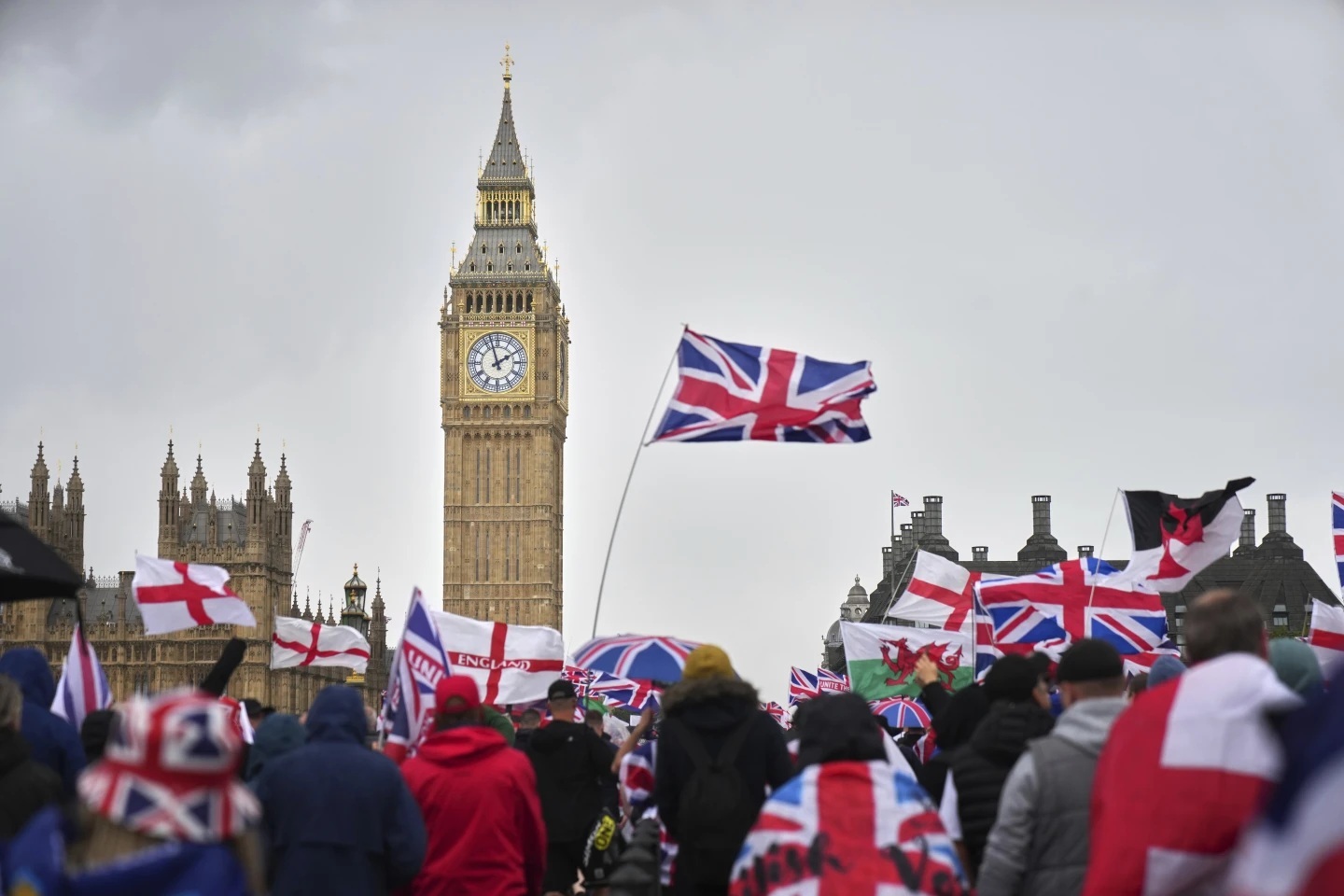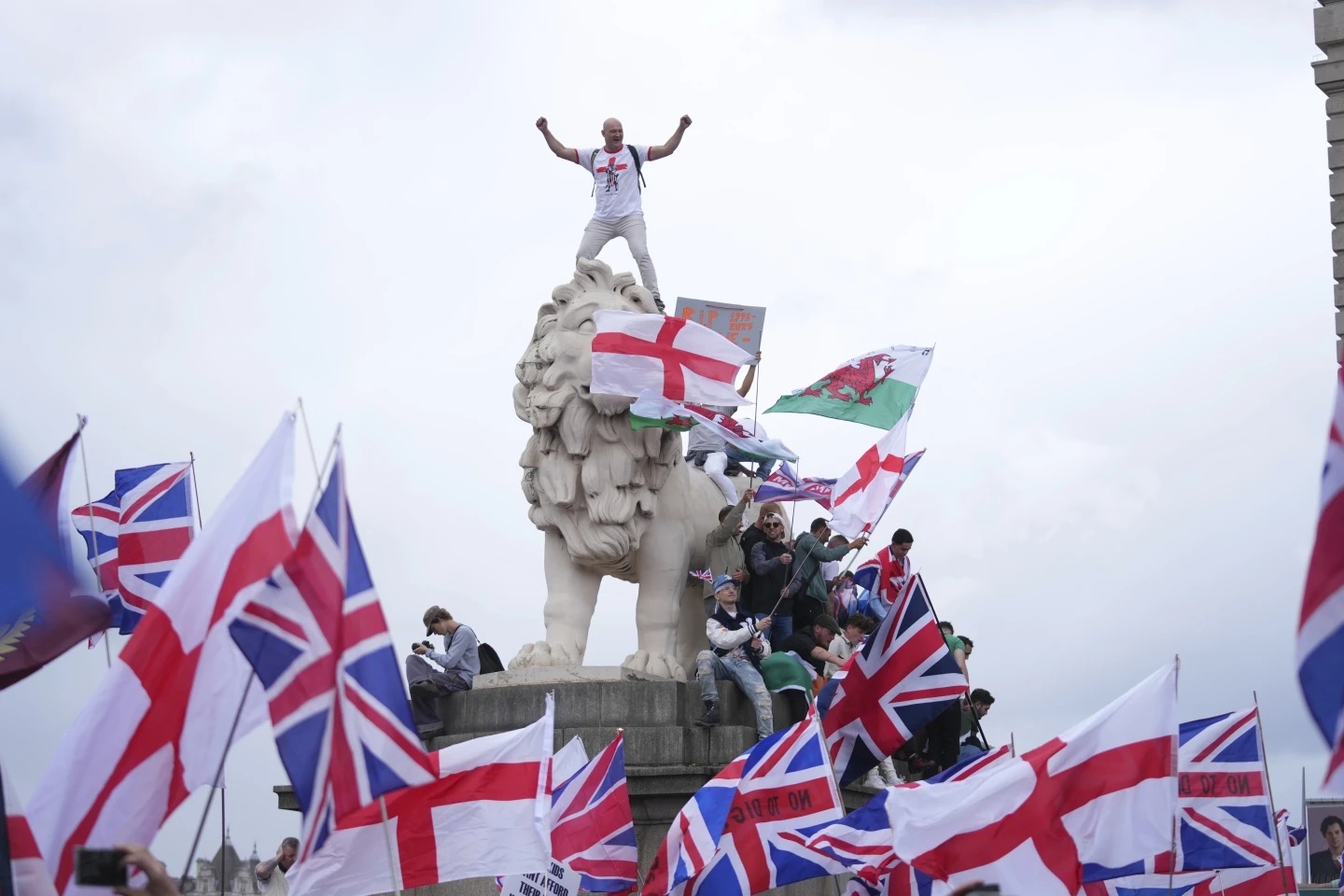Far-right Nationalism Rages on the London Streets
TEHRAN (Defapress) - On Saturday, the UK capital witnessed one of the largest protests in recent years, organized by far-right activist Tommy Robinson. The march, under the slogan “Unite the Kingdom,” drew more than 110,000 people to the streets of London and quickly turned into a scene of unrest and clashes.

The Metropolitan Police estimated the turnout at between 110,000 and 150,000, far exceeding expectations. The event was not only a symbol of the growth of nationalist sentiment in the UK, but also a sign of the deepening social divisions caused by immigration issues.
Stephen Yaxley-Lennon (known as Robinson) is the founder of the English Defence League (a nationalist and anti-Islam group) and one of the most influential figures on the far-right in the UK. The march began with a slogan of support for free speech, but its main focus was criticism of immigration policies. Speakers, including far-right politicians from European countries, stressed the dangers of uncontrolled immigration.
In his speech, French far-right politician Eric Zemmour stressed: “We are facing the same process of a massive replacement of our European people by people from the global South and Muslim cultures. We have been colonized by our former colonies.”

Elon Musk also joined the rally via video and condemned the left-wing British government. Describing the beauty of British culture, Musk warned that mass and uncontrolled immigration was leading to the gradual and then rapid destruction of the UK. Robinson told the crowd at the rally that immigrants now have more rights in the courts than local UK people.
The remarks were made as participants waved St George's and Union Jack flags and chanted slogans such as "We want our country back". They also held placards with slogans such as "Stop the boats", "Send them home", and "Enough is enough, save our children".
These symbols have been a sign of the rise of nationalism this summer, with Union Jacks appearing in abundance at events and even on village lampposts. Some see this as a sign of national pride, while others see it as a symbol of extreme nationalism. In contrast to this huge gathering, an anti-fascist march called "March Against Fascism" was held by the organization confronting racism, which gathered around 5,000 people. The 2 groups were kept apart by the police, but tensions quickly escalated.

The initially peaceful protest, which stretched from Big Ben to the River Thames and beyond Waterloo train station (a distance of about a kilometre), turned violent when a group of Robinson supporters threw bottles and other objects at police and opposing protesters.
At least 25 people have been arrested on charges including violent disorder, assault, and criminal damage, and investigations are ongoing.
The protests come as the UK faces a heated debate over whether to accept or deport migrants. The UK has been hit by a wave of migrants crossing the English Channel in boats in recent months. Anti-immigration protests have intensified this summer, particularly after an Ethiopian man was arrested on suspicion of raping a 14-year-old girl in a London suburb.
Some of the protests have also turned violent outside refugee hotels. Robinson himself has a history of violence, having been jailed last year for breaching a High Court order to repeat defamation allegations against a Syrian refugee, and has previously been convicted of assault and mortgage fraud. A similar march was planned for October last year, but Robinson was unable to attend because he was serving time in prison.

Ultimately, the rally, despite its attendance of over 110,000 (less than the 300,000 pro-Palestinian march in November 2023), reflects the deep social tensions in the UK. On the one hand, legitimate concerns about immigration and freedom of speech, and on the other, the risk of growing extremism and violence, challenge the country’s political and social structure and immigration policies. These rallies forced not only the UK police but also society to reflect on the future of coexistence and internal unity.
